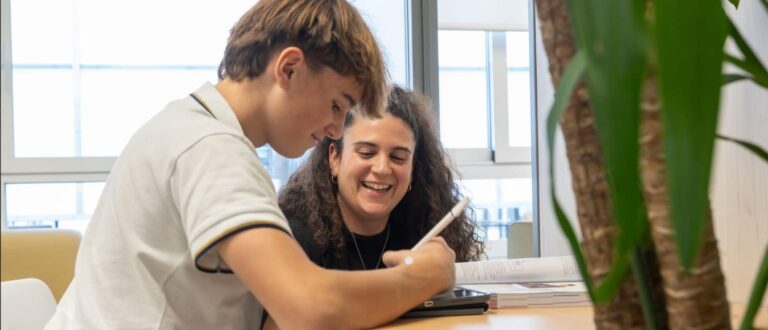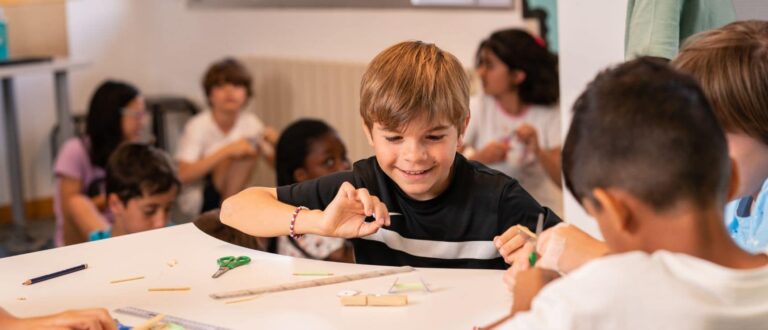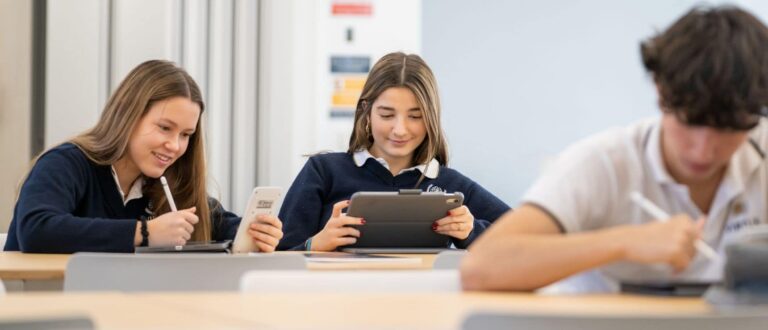Intercultural competence has become a fundamental skill for both students and educators in our modern world, due to its increasing diversity and interconnectivity. Intercultural competence encompasses a range of abilities, attitudes, and knowledge for an effective communication with people from diverse cultures.
It is specially important to foster these skills within the classroom, when a wide variety of cultures and nationalities are represented. In this post, we will dive into the meaning of intercultural competence in education, understanding why its development is essential for students and educators alike.
Why Should We Encourage Diversity Within The Classroom?
Diversity in the classroom extends beyond students originating from different countries. It includes other forms of diversity, such as learning styles, cultural experiences, languages, and religions, even among students coming from the same country.
Encouraging diversity benefits both students and teachers. When students first enter the classroom, they bring their own unique experiences, perspectives, and backgrounds. It is vital to create a learning environment where every student feels comfortable, and teachers should be flexible to accommodate individual needs. Respect plays a key role in promoting diversity. By fostering an environment of respect, students become more open to hearing different viewpoints, while feeling empowered to share their own experiences. This enriches the classroom experience for everyone involved.
What Are The Different Types Of Cultural Diversity Present In The Classroom?
While some forms of cultural diversity are immediately apparent, such as speaking different languages, there are also less visible aspects of diversity within the classroom. As one walks through the school and observes students working on various projects, it becomes evident that there is a wide range of learning styles and approaches.
At The Global College, many students have lived in multiple countries, bringing with them a wealth of diverse experiences that contribute to the overall cultural diversity within the class. Some students may not even identify strongly with a single nationality, instead embracing multiple cultural identities.
Learning styles are another fascinating aspect of cultural diversity. Some students prefer verbal expression, while others gravitate towards visual approaches. As a teacher, the challenge lies in presenting topics in a manner that accommodates different learning styles and makes every student feel valued.
How Should We Promote Diversity And Cultural Awareness In An Educational Setting?
One of the first steps is demonstrating genuine interest in the various cultures and experiences present within the classroom. When students perceive that their teachers genuinely want to learn more about their backgrounds and preferred learning styles, they often respond positively and feel more at ease.
In terms of presenting topics and eliciting student responses, there are a variety of options available. When posing questions or assigning tasks, students should have the freedom to express themselves creatively in ways they are comfortable with. For example, some may choose to record a podcast, while others might create a video or engage in role-playing. The key is to relate the content to their individual styles and strategies.
It is truly remarkable to reflect on how far we have come in recent decades in recognizing and embracing different learning styles. Simply memorizing course content is no longer sufficient. Allowing students to feel comfortable and express themselves in their preferred ways leads to greater academic achievement and personal satisfaction.
The Importance Of A Multicultural Environment
As students progress beyond their academic years and enter university or engage in international travel, they will inevitably encounter diverse cultural experiences. Therefore, it is vital to foster intercultural competence and awareness as early as possible, which is it is fundamental at The Global College.
There are numerous additional reasons why a multicultural environment is crucial. Studies have consistently demonstrated that such an environment stimulates creativity, problem-solving abilities, and critical thinking. It encourages individuals to view things from fresh perspectives and to challenge pre-existing beliefs, ultimately fostering personal and intellectual growth.
In conclusion, in today’s interconnected world, intercultural competence has become an indispensable skill for both students and educators. By promoting diversity, embracing cultural awareness, and cultivating an inclusive learning environment, we empower students to thrive in an increasingly globalized world. The Global College recognizes the significance of intercultural competence and is committed to nurturing this skill within its students, fostering their personal and academic growth, and preparing them for the future.







